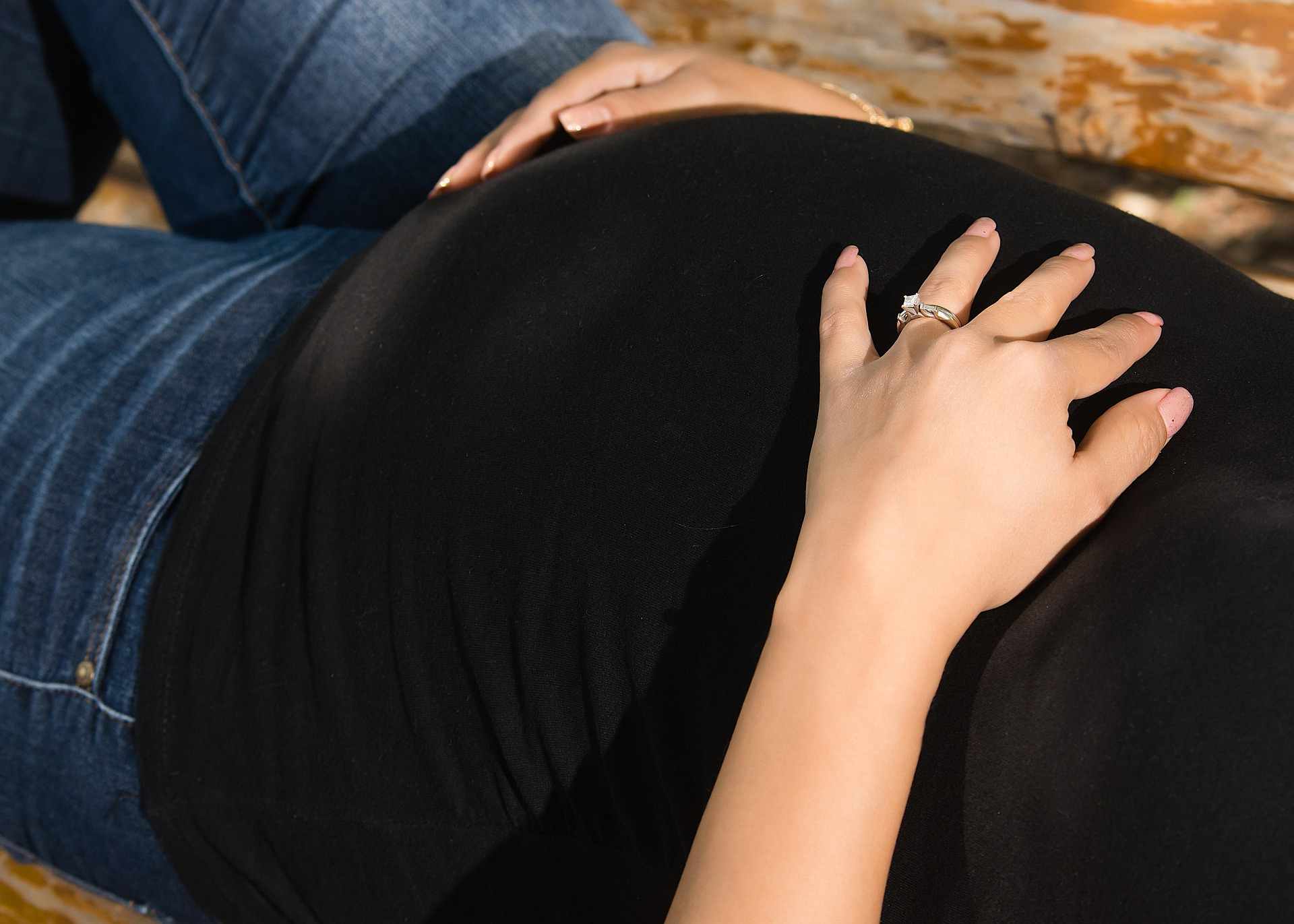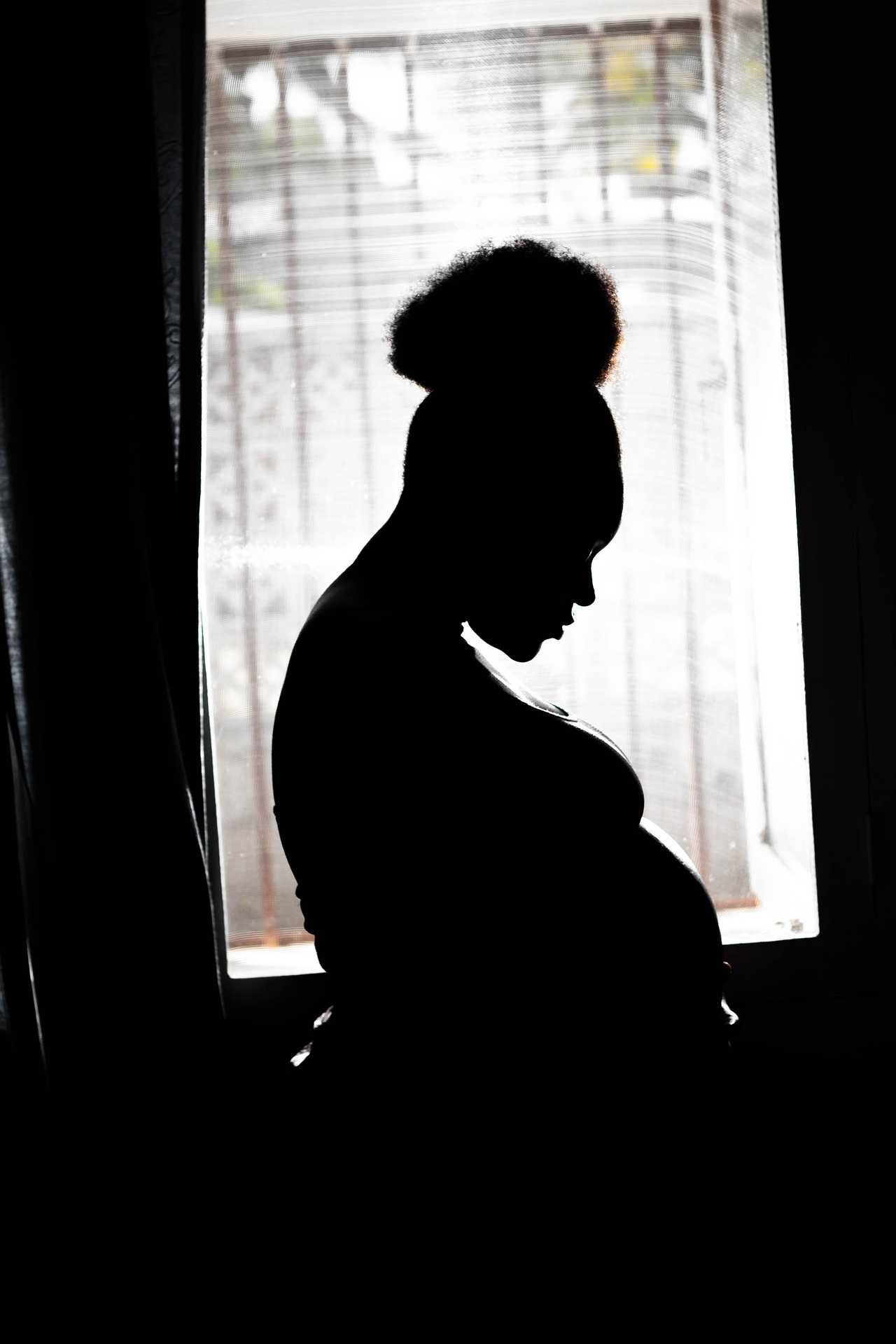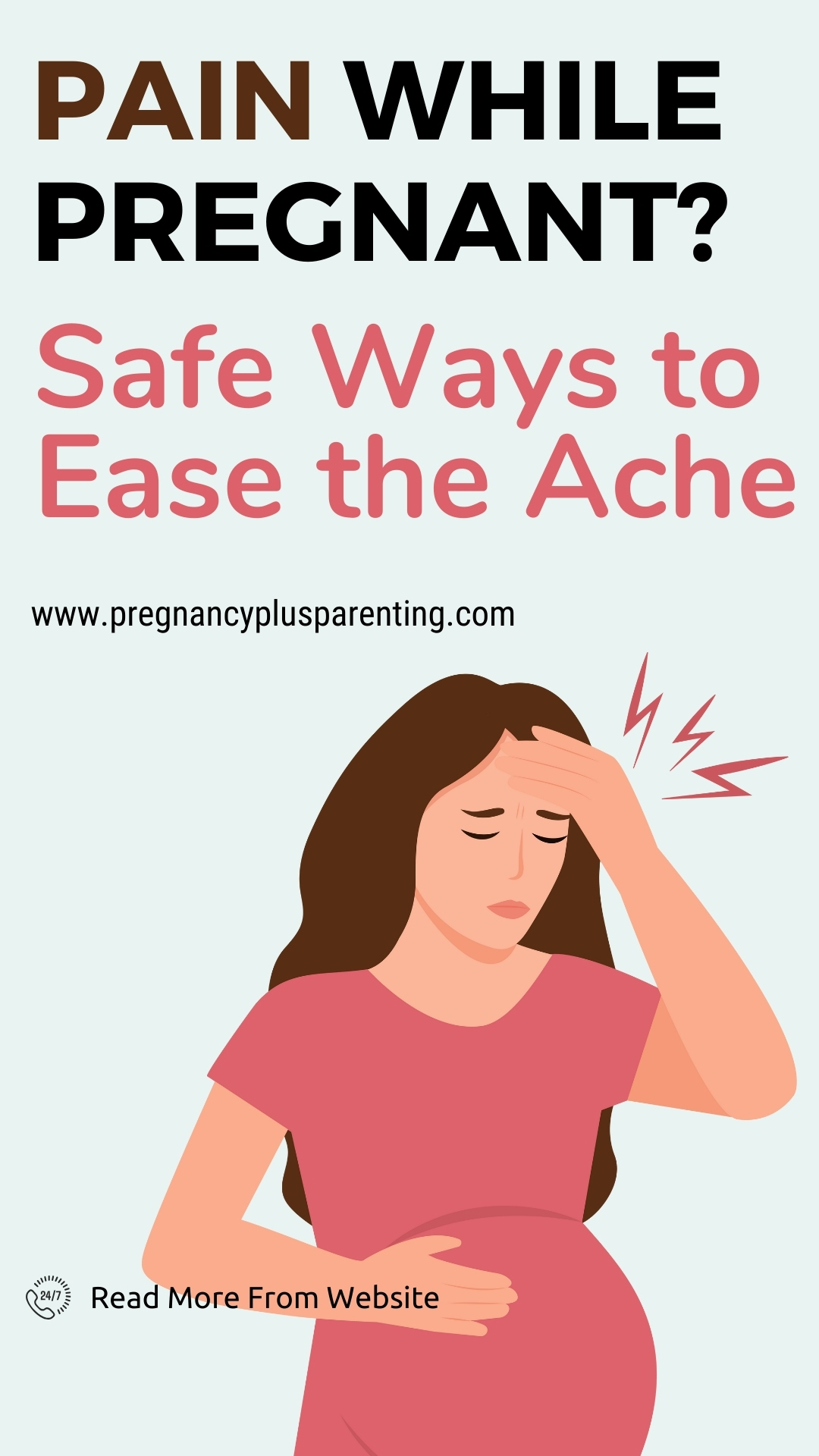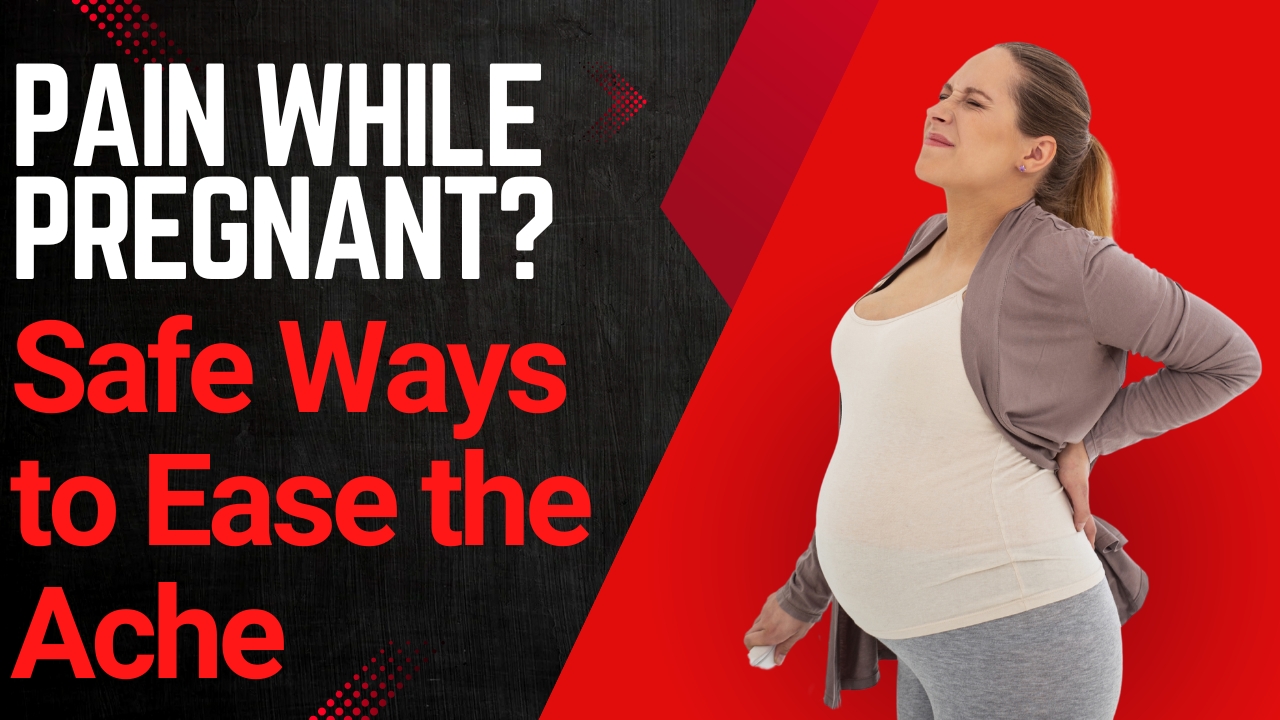Pain While Pregnant? Safe Ways to Ease the Ache
Headache , backache, or a minor bruise—normally, you’d simply take a painkiller. But during pregnancy , this isn’t so easy, as medications can affect your baby.
The good news: There are alternatives, and not all painkillers are the same . Here’s a brief overview.

What alternatives to painkillers are there?
Whether pregnant or not, there are some proven headache remedies you can try before resorting to pills:
- Rest and sleep
- Fresh air
- Drink plenty, preferably water
- Gentle massages with peppermint oil on the temples
Take a short walk and then lie down, preferably undisturbed and away from bright light. Alternatively, you can place a cool cloth on your forehead to relieve the discomfort.

Acupressure techniques can also help. Gentle pressure on specific points, such as between the thumb and index finger or on the temples, can relieve headaches. Breathing exercises and meditation are also proven methods for relieving tension and reducing stress as a potential trigger for pain.
Headaches can also be caused by dehydration or low blood sugar . Make sure you eat regularly and drink plenty of water. Foods containing magnesium, such as bananas or nuts, can also help, as a magnesium deficiency can contribute to headaches.
If you have a cold or a feverish infection, home remedies and, of course, rest often help.

Back pain & Co.
Back pain is common during pregnancy. These measures can help:
- Regular swimming : Relieves strain on the back and strengthens the muscles.
- Daily back exercises: There are numerous instructions
Heat can also relieve back pain. Place a hot water bottle or a warm cherry stone pillow on your lower back – this relaxes the muscles and promotes circulation. Make sure the temperature is comfortable and not too hot.
For bruises or similar injuries, cooling helps . By the time your child is older, you should have a cold pack * on hand anyway—it’s best to get one now.
If your back pain persists or is very severe, physiotherapy may be beneficial. Special exercises and gentle massages performed by a professional can specifically relieve tension and prevent further discomfort.

Are there any painkillers that are allowed?
Some painkillers are permitted during pregnancy under certain conditions. Be sure to consult your doctor before taking them.
- Paracetamol: Most commonly recommended during pregnancy. Doctors consider up to 1 gram three times a day to be safe. However, there are indications of possible long-term effects—so consult your doctor before taking it.
- Ibuprofen: Allowed until the 28th week of pregnancy, after which it can affect the baby’s heart and kidneys.
- ASA (acetylsalicylic acid): Recommended only in low doses (max. 100 mg per day). It is not recommended to take it shortly before delivery , as ASA inhibits blood clotting and increases the risk of heavy bleeding.

If in doubt, ask!
Before you take any action on your own that could harm you or your baby, talk to your doctor to be on the safe side.
Some pain during pregnancy is harmless, but in certain cases you should seek medical advice immediately :
- Abdominal pain or cramps that are unusually severe or accompanied by bleeding
- Visual disturbances or dizziness occurring together with headache
- Severe headaches that do not subside despite rest
- Sudden severe back pain with no apparent cause
These symptoms may indicate more serious problems such as preeclampsia, a urinary tract infection, or premature labor .
We wish you a relaxed and as pain-free pregnancy as possible!







